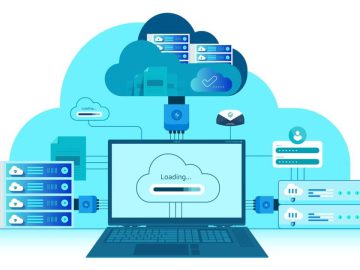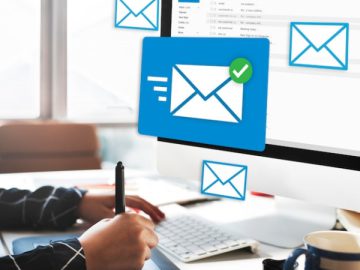In this present digital age, email still remains the most popular and effective communication tool that helps businesses to send promotional messages to the right kind of audience. Email marketing can be the best way to advertise and promote your business to a large audience base.
But when you have decided to use this marketing strategy then email authentication becomes extremely important for getting the desired results. For building better connections and earning a higher return on investment, knowing the importance of email authentication for deliverability will help you transform your marketing strategy effectively.
This also means that you can be rest assured that your email will reach the inbox of the audiences and it will also resonate with them in the long run. Email authentication can be the most important step for ensuring that the emails that you send land in the mailbox of the recipient rather than in their spam folders. Higher inbox placement is the best way of sending business messages to the right kind of audiences. It will ensure higher conversion rates so that email is used as a means to gaining customer attention and sending the emails to the intended audiences.
Email Authentication- Its Importance
Email authentication can be done with the help of email deliverability tools so that legitimacy of the emails can be achieved. It also helps to combat spoofing, phishing as well as other email borne threats. It also helps in protecting the email reputation of business while making sure that the emails reach the right recipients. Therefore, the use of SPF, DMARC and DKIM is extremely important for email authentication so that spammers and spoofers cannot impersonate your business. As an email marketer, you need to pay attention to the authentication process as it ensures that your email is not forged. This procedure of trust works by validating the sender and this is done by blocking out fraudulent and harmful uses of emails such as spam and phishing. This process is also managed by the email provider or the Internet Service provider that identifies and confirms the sender through the IP address and ensures delivery of the email is seamless.
The Importance of Email Authentication for Deliverability
Email authentication is an important step that involves verifying the identity of the email sender and it is done to make sure that the email comes from a trusted source. It is a step that eliminates emails sent by phishers or spammers and this is done for making sure customers have trust on emails sent by the business. For the email marketer’s checklist, email authentication becomes extremely important as it helps in improving email deliverability so that emails do not go to spam folders of the recipients. Email authentication is crucial for making sure that ESP does not classify the emails sent by businesses as fraudulent or suspicious which might eventually lower the email deliverability rates.
The primary role of the ESP is to gauge the trust and reputation of the sender so that the email will land in the inbox of the recipients. Unauthenticated emails might get flagged as spam and it even blocked by ESP which can have an adverse impact on the email deliverability rates. Therefore, for ensuring that your emails are sent to the intended recipient, you need to authenticate the emails for bypassing these filters.
Email authentication becomes even more crucial when doing guest posting campaigns for example as it will ensure better email delivery so that you will not be marked as spam by SPF. While being tagged as legit, your business will also receive trusted sender status by SPF so that your emails will be sent to the inbox of the recipients rather than landing on the spam folder. Phishing attacks and email spoofing can also be prevented with email authentication as it helps to detect and block messages that are sent from unauthorized and forged sources. While email spoofing is a technique involving changing the address of the sender or the email message domain for making it appear to be coming from legitimate and trusted sources. On the other hand, phishing is a type of email spoofing that tricks the recipient to click on malicious attachments and links. This procedure might also make recipients provide their sensitive information like credit card numbers, bank account details and passwords which might lead to serious results. This is the reason why email authentication is important as it helps to identify and reject these messages before it can reach the recipient inbox.
Factors to Consider for Email Deliverability
There are many email deliverability tools that can be used for getting desirable results but there are certain factors that you need to consider for this process. Proper implementation along with optimization of action strategies can help in improving the email deliverability rates. It is also important to pay attention to the sender score that is provided by ISP as it helps in increasing the deliverability rates and a lower score might dismiss the email as fraud or spam. Another important factor to consider is the email content optimization as it has a direct impact on the deliverability rates. Therefore, business owners need to pay attention in creating informative, compelling and interesting subject lines that will lead to higher credibility of the sender. It also ensures that you will get higher opening rates on the emails sent to the recipients.
The right kind of strategies can also help in enhancing security and for this it is crucial to follow SPF, DMARC and DKIM protocols that can be used for verifying the domains of the sender. This can also keep email phishing and spoofing at bay so that nothing can tarnish the reputation of your brand. With the help of email authentication, the integrity of the domain can be maintained and the brand image remains good in the eyes of your customers. Not to forget to follow the industry requirements and compliance so that nothing comes in between your email campaigns and customers.




